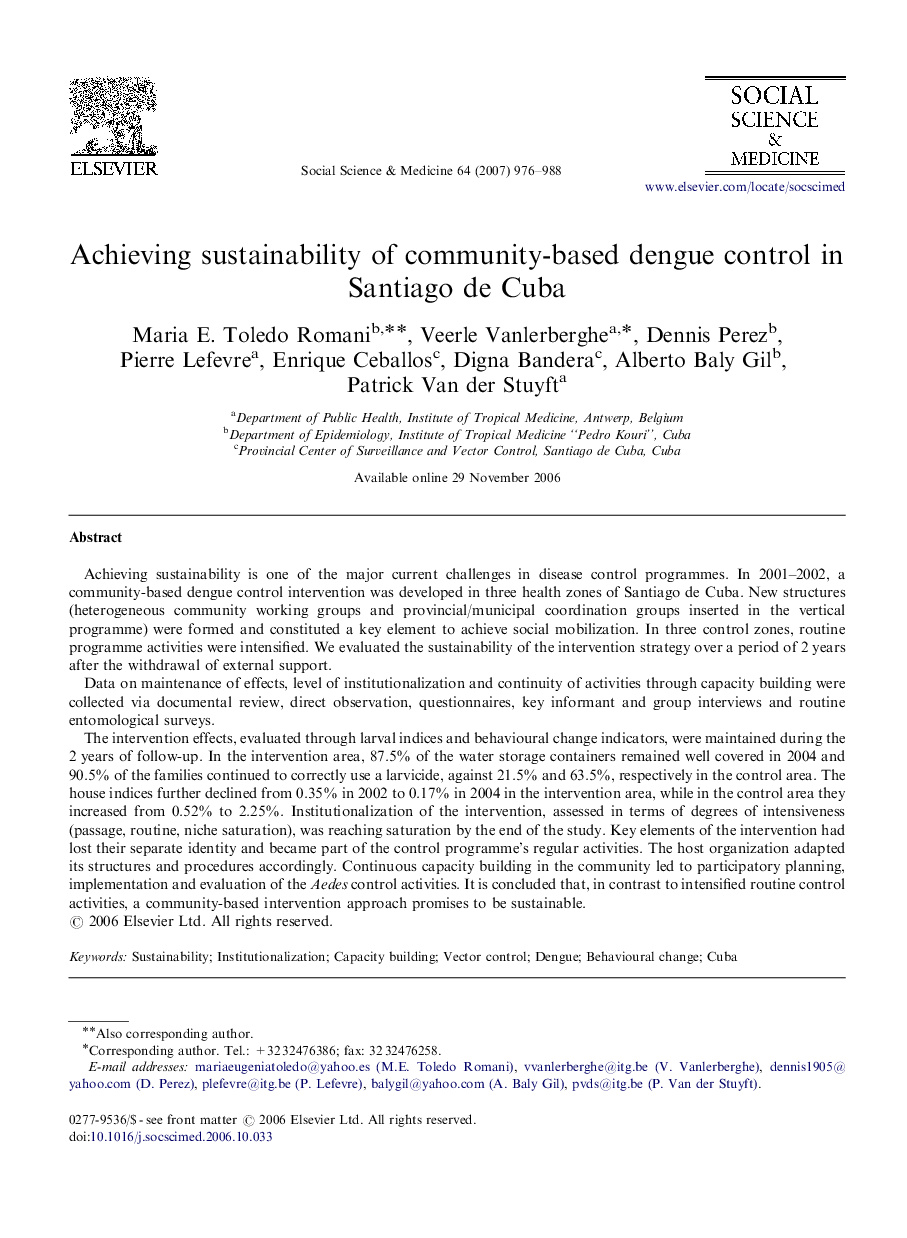| کد مقاله | کد نشریه | سال انتشار | مقاله انگلیسی | نسخه تمام متن |
|---|---|---|---|---|
| 954014 | 927620 | 2007 | 13 صفحه PDF | دانلود رایگان |

Achieving sustainability is one of the major current challenges in disease control programmes. In 2001–2002, a community-based dengue control intervention was developed in three health zones of Santiago de Cuba. New structures (heterogeneous community working groups and provincial/municipal coordination groups inserted in the vertical programme) were formed and constituted a key element to achieve social mobilization. In three control zones, routine programme activities were intensified. We evaluated the sustainability of the intervention strategy over a period of 2 years after the withdrawal of external support.Data on maintenance of effects, level of institutionalization and continuity of activities through capacity building were collected via documental review, direct observation, questionnaires, key informant and group interviews and routine entomological surveys.The intervention effects, evaluated through larval indices and behavioural change indicators, were maintained during the 2 years of follow-up. In the intervention area, 87.5% of the water storage containers remained well covered in 2004 and 90.5% of the families continued to correctly use a larvicide, against 21.5% and 63.5%, respectively in the control area. The house indices further declined from 0.35% in 2002 to 0.17% in 2004 in the intervention area, while in the control area they increased from 0.52% to 2.25%. Institutionalization of the intervention, assessed in terms of degrees of intensiveness (passage, routine, niche saturation), was reaching saturation by the end of the study. Key elements of the intervention had lost their separate identity and became part of the control programme's regular activities. The host organization adapted its structures and procedures accordingly. Continuous capacity building in the community led to participatory planning, implementation and evaluation of the Aedes control activities. It is concluded that, in contrast to intensified routine control activities, a community-based intervention approach promises to be sustainable.
Journal: Social Science & Medicine - Volume 64, Issue 4, February 2007, Pages 976–988